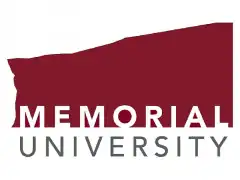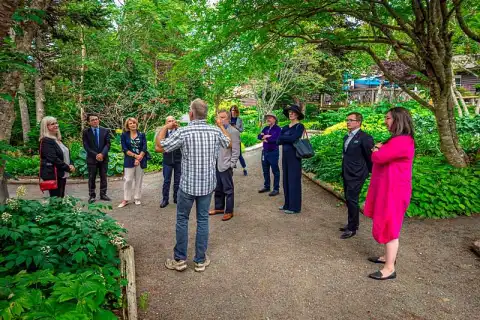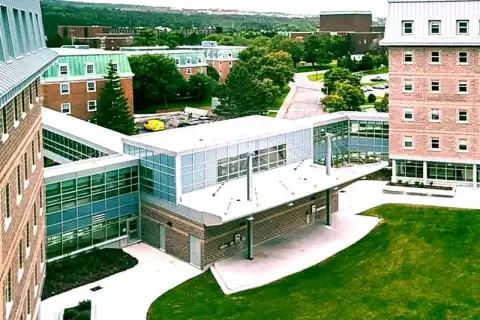Master of Science - Earth Sciences
- 2 years
- Duration
- 9,666 CAD
- Price
- Rolling admission
- Start
- Rolling admission
- Deadline
- Master
- Degree
- Campus
- Format
- St. John's / Canada
- Location
Program description
The Department of Earth Sciences provides an MSc degree.
A quick perusal of the department's faculty roster reveals the vast array of research fields in which the department has competence and is willing to supervise students. In addition to faculty experience, our department is exceptionally well-equipped with sophisticated, purpose-built analytical equipment. All graduate degrees require a thesis based on original research.
Earth Sciences is a very broad discipline with strong ties to cognate areas such as Physics, Chemistry, Biology, and Mathematics. Some of the most interesting research takes place at the interfaces with these other disciplines. Although most of our graduate students have prior degrees in Earth Sciences, this is not always the case. For example, physics or mathematics students often find relevant thesis projects in geophysics; biology students in paleontology; chemistry students in geochemistry or mineralogy. Well qualified and motivated students from other backgrounds are encouraged to contact faculty members to discuss possible thesis projects.
Program structure
- Graduate Internship in Earth Sciences
- Physics of the Solid Earth
- Crustal Geophysics
- Changes in Global Paleoenvironment
- Tectonic Regimes
- Engineering and Environmental Geology
- Chemical Fluxes in the Earth
- Paleoecology
General Courses
- Quantitative Techniques in Mineralogy and Metamorphic Petrology
- Advanced Field Course in Applied Geophysics (may be offered in accelerated format)
- Machine Learning and Data Analysis in the Geosciences
- Kinematic modelling of plate tectonics
- Rotation of the Earth
- Theory of Global Geodynamics
- Paleomagnetism
- Advanced Exploration Seismology
- Borehole Seismic
- Gravity and Magnetic Methods
- Mathematical Formulations of Seismic Wave Phenomena
- Genesis of Mineral Deposits
- Marine Geology
- Flow and Transport in Fractured Rock
- Advanced Engineering and Environmental Geology
- Deformation Mechanisms
- Stable Isotope Geochemistry
- Trace Element Geochemistry
- Methods in Advanced Research in Geochemistry
- Radiogenic Isotope Geochemistry
- Biogeochemistry
- Petroleum Geology
- Modern and Ancient Sedimentary Environments
- Sequence Strategraphy
- Palaeobiology of Early Animal Life
- Palynology and Paleobotany
- Special Topics in Earth Sciences
Price
- Tuition — 9,666 CAD
OTHER FEES (REQUIRED) amounts listed are for two semesters
- Student Services Fee — 150 CAD
- Students' Union — 100 CAD
- Recreation Fee — 220 CAD
- Health Insurance — 560 CAD
Requirements for applicants
- BSc with at least a 2nd class Honors
- Students whose native language is not English will be required to submit documentation of passing the Test of English as a Foreign Language (TOEFL) with a score of at least 550
- Students who have successfully completed at least two years of study at a university where English is the language of teaching and examination may be exempt from this requirement
About the university

Memorial University has a unique responsibility to the people of Newfoundland and Labrador as the only university in the province. Memorial University was founded as a tribute to the Newfoundlanders who gave their lives in military duty during globe War I and later conflicts. We take inspiration from their efforts to create a better future for our province, our country, and the globe.
Over 115 different nations are represented among Memorial University's 19000+ students. Programs range from the traditional to the cutting edge, and can be found at any of Memorial's five locations or online. Memorial University's worldwide network of nearly 100,000 successful alums enhances the institution's capacity and reputation for leadership in research, teaching, and public engagement. Learn more about Memorial University in this quick read.
Vision, Mission
- Vision — Memorial University will rise to prominence as one of Canada's and the world's top public institutions of higher learning, and it will honor its commitment to serving the people of Newfoundland and Labrador.
- Mission — When it comes to education, research, scholarship, creative activity, service, and public engagement, Memorial University is committed to being at the forefront of innovation and excellence. International students and scholars are welcomed and supported at Memorial, and the institution's contributions of knowledge and experience are valued on all levels of society.
Campuses
More than 19,400 students and 3,800 teachers and staff from more than 115 countries study, teach, conduct research, create, and participate in activities at our campuses and other locations. You can attend classes at one of Memorial University's several campuses in Newfoundland and Labrador or anywhere in the world; we also offer 475 courses online.
- St. John's campus
- Grenfell Campus
- Marine Institute
- Harlow Campus
- Signal Hill Campus
- Labrador Campus
Read more about Memorial University, Newfoundland and Labrador, Canada





